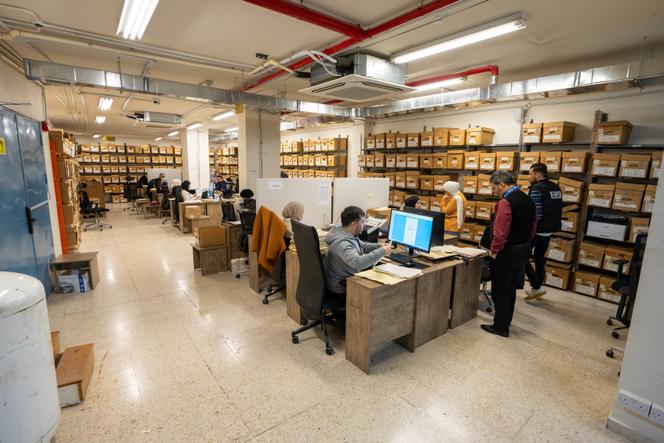


It was a rescue mission worthy of an action film. The story unfolded between bomb-ravaged Gaza and Amman, the peaceful capital of Jordan, via the Sinai desert. The protagonists were a handful of Palestinian and international employees of the United Nations Relief and Works Agency for Palestine Refugees in the Near East (UNRWA), supported by pilots from the Jordanian armed forces.
Time was short, and the mission confidential. They had to secure what might look like old papers, but were in fact documents of immense historical value: the family registration cards of Gaza refugees. Some were created shortly after the original tragedy, the Nakba, when more than half the Palestinian population (750,000 out of 1.2 million) was expelled from their land with the creation of Israel in 1948.
Used for administrative purposes, these archives document the circumstances of the tragedy: the names of Palestinian towns emptied of their inhabitants, acts of violence, displacements. They are the evidence of a dramatic history. They prove the "Palestine refugee" status granted to those expelled in 1948 and their descendants. If these documents disappeared, it would be impossible for UNRWA, in operation since 1950, to demonstrate the link between current generations and the victims of the forced exodus. In Gaza, this is crucial: Almost 70% of the population is made up of refugees from other parts of historic Palestine.
You have 80.38% of this article left to read. The rest is for subscribers only.
